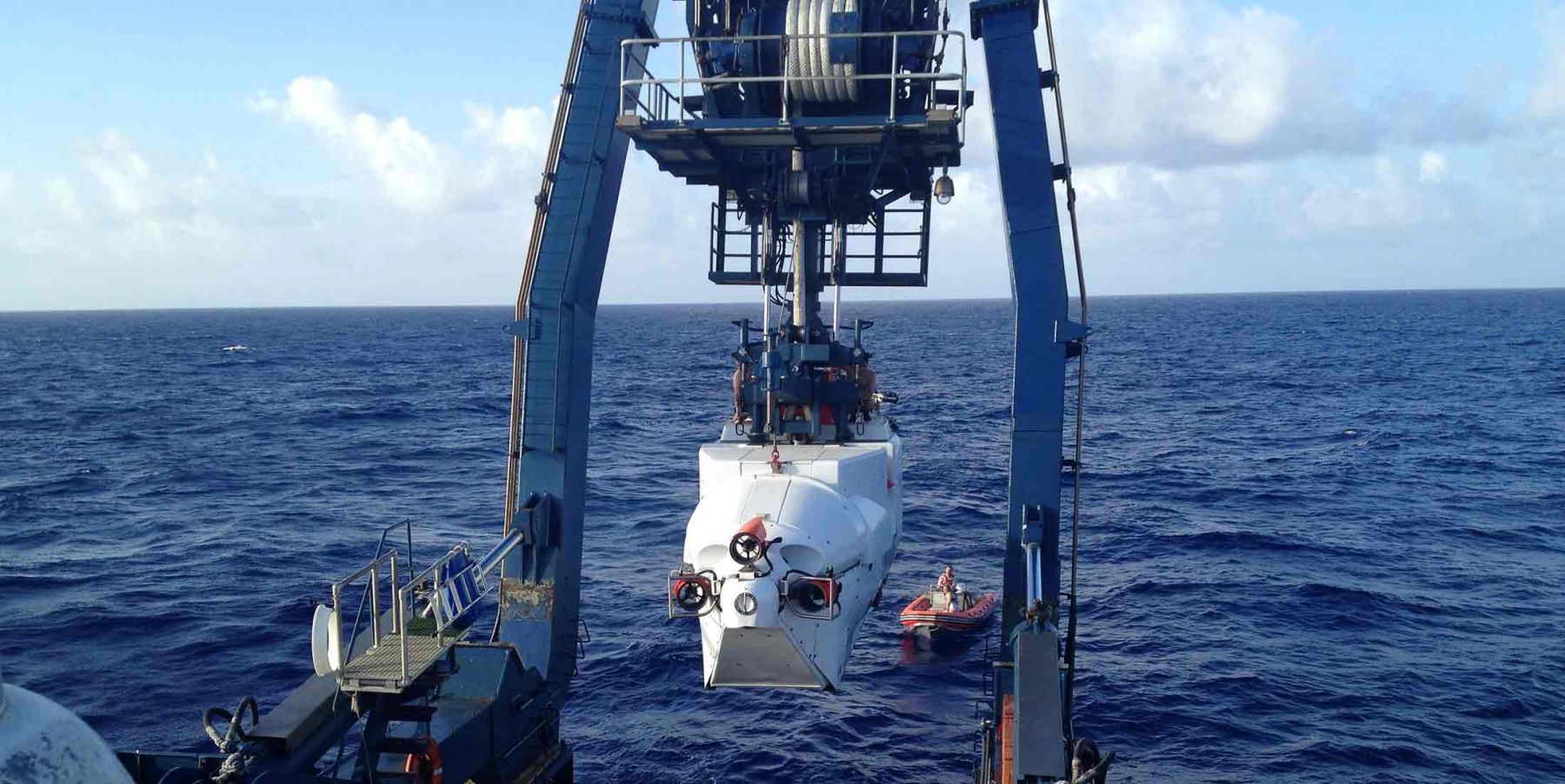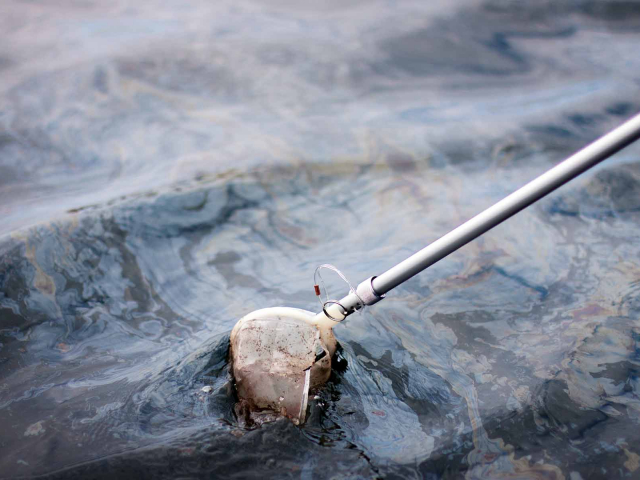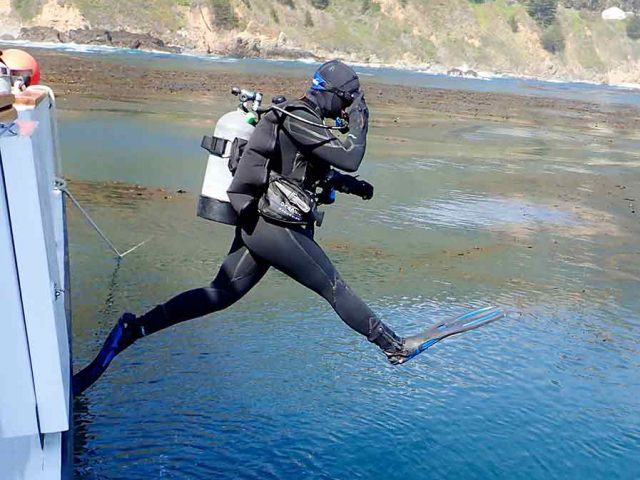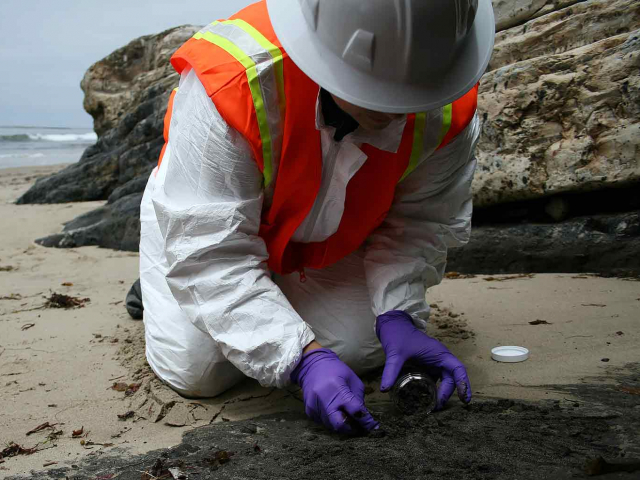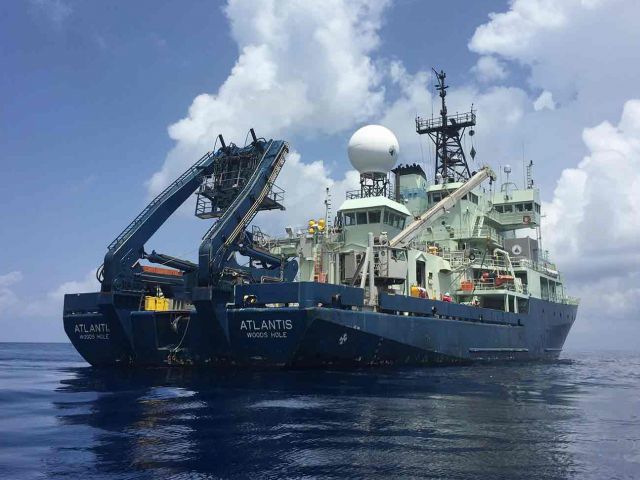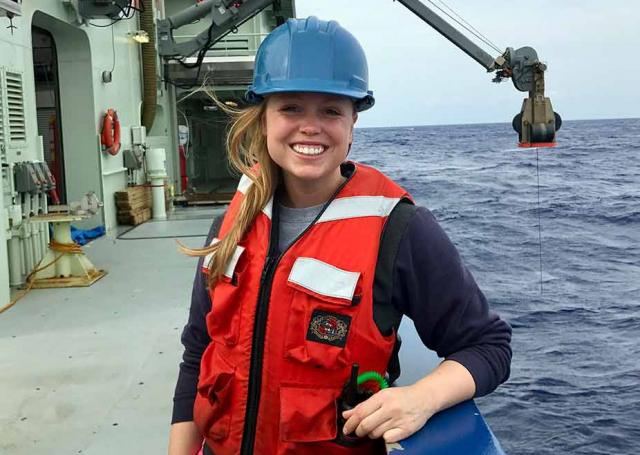
About Eleanor
Eleanor Arrington is a Ph.D student in the IGPMS program. She is from Rochester, New York and double majored in ecology and evolutionary biology and environmental science from the University of Rochester.
Research
My research focuses on the bacterial consumption of water-soluble hydrocarbons from natural and anthropogenic oil sources. This work builds on recent findings from heavily studied marine oil spills such as the Refugio pipeline breach and the Deepwater Horizon blowout, and capitalizes on access to natural seep systems offshore California and in the Gulf of Mexico as model systems when there are no spills to study. We utilize submarines and other submersible tools to find oil seeps and use them as natural laboratories to study microbes that utilize oil as a source of carbon and energy. I am specifically interested in which microbes respond to water-soluble hydrocarbons (an understudied class of compounds in petroleum), and the metabolic strategies they employ to consume these compounds in unique environments, such as the deep ocean.
My work at UCSB has taken me scuba diving, to oil spills right in Santa Barbara's backyard, and to the bottom of the ocean in a submarine. I find it incredibly satisfying that I get to explore nature both physically and intellectually.
Eleanor Arrington, Ph.D. Candidate
Interdepartmental Graduate Program in Marine Science
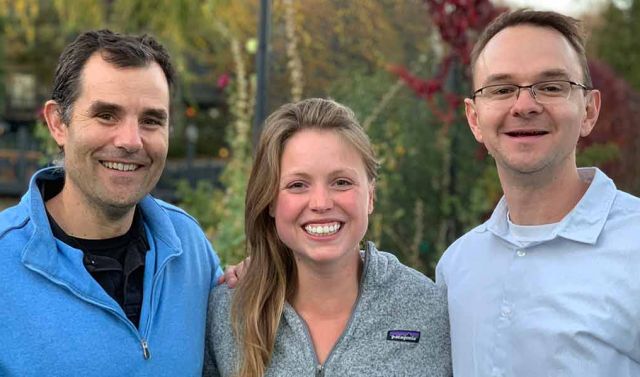
How and Why Did You Get Into Your Area of Research?
As an undergraduate at the University of Rochester, I met a chemical oceanographer (John Kessler) who studies methane in various environments, from oil spills to arctic permafrost. At the time, I had been working in a biomedical laboratory and was extremely interested in learning how to use my skills to study environmentally relevant processes. Through John Kessler’s mentorship, I decided to attend UCSB for a Master of Science degree in IGPMS with his close collaborator and friend, David Valentine, who heavily studied the microbial response to the Deepwater Horizon oil spill. During my first year at UCSB, I was able to conduct experiments on two research cruises and participated in the scientific response to the Refugio oil spill offshore Santa Barbara. During that year, I became enamored with field-work and hypothesis driven science, and realized I wanted to undertake more research beyond the scope of the Master’s degree and applied to the PhD program in IGPMS. I consider myself very fortunate to study what fascinates me, and though it can be challenging at times, I get a lot of joy from doing research, mentoring undergraduates, and learning how to teach.
